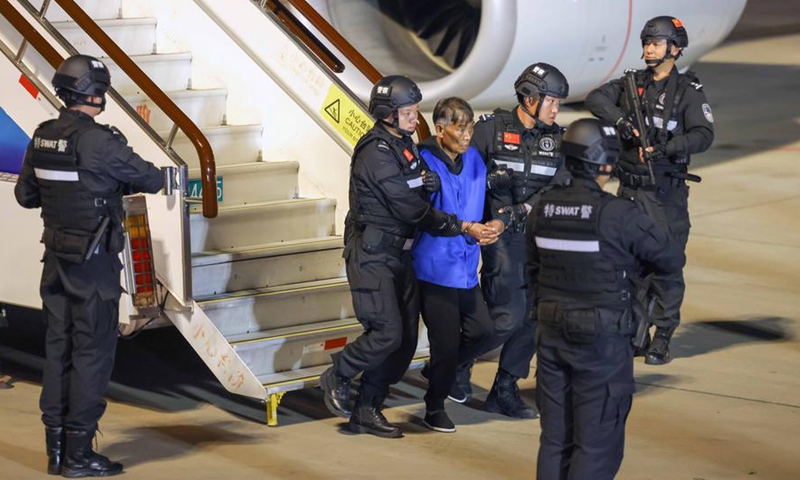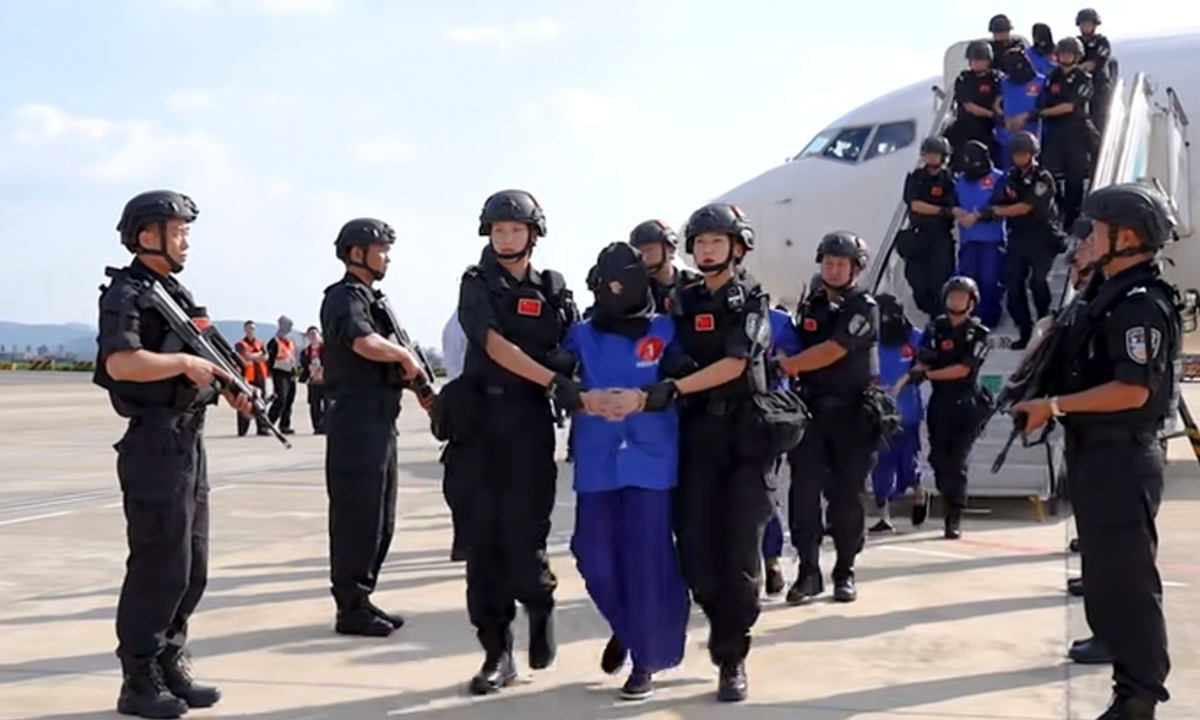Large-scale telecom fraud in northern Myanmar eradicated, cases enter litigation stage: China’s ministry of public security

A telecom fraud suspect is escorted by Chinese police officers at the Kunming Changshui International Airport in Kunming, Southwest China's Yunnan Province, Jan 30, 2024. Photo: Xinhua
As of the end of 2024, more than 53,000 Chinese nationals suspected of involvement in fraud-related crimes in Myanmar have been arrested. The notorious four major criminal syndicates operating in Myanmar's northern region have been completely dismantled, and large-scale telecommunications fraud operations near China's border in northern Myanmar have been eradicated, according to China's Ministry of Public Security (MPS) on Friday.
During a press conference on Friday, Zhang Ming, a spokesperson for the ministry, addressed the issue of telecom fraud involving China in Myanmar's northern region.
Zhang said that since the deployment of a special operation to combat telecom fraud related to Myanmar's northern region in July 2023, the MPS, relying on the China-Myanmar law enforcement and security cooperation mechanism, has directed public security agencies in Southwest China's Yunnan Province, East China's Zhejiang Province, and other regions to carry out joint operations and work on case investigations.
After the campaign, there has been a sharp decline in both the number of telecom fraud cases and related financial losses in China. Cases involving the four major criminal syndicates have gradually entered the litigation stage, Zhang said.
Although significant progress has been made in combating and addressing the issue, the current criminal situation remains severe and complex, Zhang added.
First, the number of cases remains high, with telecom fraud still being a major crime type that has seen a high incidence rate, significant financial losses, serious harm, and strong public complaints.
Also, the crime exhibits clear transnational and organized characteristics, with fraud syndicates having tight organizational structures. Some implement closed management and use violent methods to illegally control lower-level personnel in their operations. Fraud leaders and key members coordinate with domestic personnel to engage in various illegal activities, according to MPS.
Fraud methods are also rapidly evolving, with fraudsters closely following social trends and tailoring scams to individuals' preferences. They create customized fraud scripts for people of all age groups, professions, and educational backgrounds, leading to a wide range of victims.
Besides, the scale of overseas fraud operations remains large. While there has been significant improvement in Myanmar's northern region, numerous parks that provide venues for telecom network fraud still exist abroad, according to the press conference.
Fraud groups leverage new technologies like blockchain, virtual currencies, and AI to refine their criminal tools.
According to a report by the Xinhua News Agency on December 2024, 39 members of major criminal groups based in northern Myanmar were prosecuted in China for telecom fraud and other crimes targeting civilians in China.
Global Times



